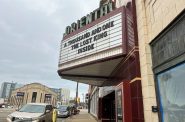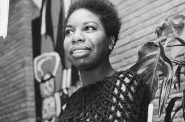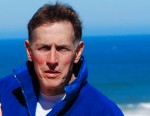Superheroes
There are two questions that plague me about the movies. One is: Why do we need love stories? Why is romantic love so basic to our cinematic literature? I tend to think that it is all about procreation and part of an elaborate mating ritual, but I am told that just asking the question makes me a cynic and I’m not sure I am ready to be thusly compartmentalized. The other is: Why super heroes?
In the past year alone we have had Iron Man, Batman, The Hulk, Hancock, Hellboy, Bolt, and now Watchmen. Before that came Spiderman, but he ran his course a few years ago. I suspect the Fantastic Four will return and apparently the Last Stand of the X-Men was not, literally, a last stand. And if the endings of Iron Man and The Hulk are to be believed there will be more to come out of that Ultimate Alliance.
The answer at an economic level is obvious: They make a lot of super hero movies because people go to see super hero movies and therefore they make a lot of money making super hero movies. Somebody started it and if Hollywood is good at anything it’s jumping on whatever bandwagon is making money.
 But as a social anthropologist, I wonder what it is about our society that pushes us to need super heroes to play so prominent a part in the culture. A friend once answered that question with, “Well, with our politicians so obviously worthless we need someone strong to look up to.” The man definitely has a point. For the last eight years at least, the perception has been that the leaders of our country, the politicians, are far from heroes. And before that, Bill Clinton, it turned out, was nothing more than a man and a weak one at that. The first President Bush was a bit of a clerk in his manner. Ronald Reagan wore spurs, chaps, and a cowboy hat, and he came out of the West with the sun at his back. He walked the walk and stood in the shadow of hundreds of cowboy heroes; not super heroes, but the literary equivalent of brave, strong men on whom we have always counted. With Reagan it may have been an illusion, or, as some of us still believe, a delusion. But we always seem to need heroes to stand in for us, to stand up for us, to walk into the flames before us.
But as a social anthropologist, I wonder what it is about our society that pushes us to need super heroes to play so prominent a part in the culture. A friend once answered that question with, “Well, with our politicians so obviously worthless we need someone strong to look up to.” The man definitely has a point. For the last eight years at least, the perception has been that the leaders of our country, the politicians, are far from heroes. And before that, Bill Clinton, it turned out, was nothing more than a man and a weak one at that. The first President Bush was a bit of a clerk in his manner. Ronald Reagan wore spurs, chaps, and a cowboy hat, and he came out of the West with the sun at his back. He walked the walk and stood in the shadow of hundreds of cowboy heroes; not super heroes, but the literary equivalent of brave, strong men on whom we have always counted. With Reagan it may have been an illusion, or, as some of us still believe, a delusion. But we always seem to need heroes to stand in for us, to stand up for us, to walk into the flames before us.
We live in a culture that is patriarchal by design and perhaps by nature. Patriarchal and hierarchical. We choose a leader and that leader goes out and meets the enemy for us so that we can stay at home and live a comfortable life. And that leader has always tended to be male or at least a female who thinks the way a male does, in a vertical way, in the way of dominance and submission, of power and of strength, in the way of winning. We may have given up on politicians being true heroes or great leaders of men when Richard Nixon was found on his knees in the halls of the White House barking and growling at the pictures of past Presidents.
Since politicians have so betrayed us, men, and occasionally women, who can fly, or are really strong and can break big things, or see through stuff, or become invisible, stretch or transform into other shapes, take an incredible beating and still pack a monstrous punch, and have access to all kinds of gadgets, all while wearing tights in bright colors, or in some cases looking like a clump of mud, will have to take care of us and protect us from the horrendous evils that linger at the fringes of our fantasies.
Superheroes do it for us now in our popular literature.
So I think the question that bothers me the most is: Why is there such a huge disparity between the popular literature version of us — the superhero — and the street version of us, and you know who you are? I believe that the more difficult, dreary, and debilitating reality becomes, the grander and more outside the realm of the possible our fantasies need to be. The less we are able to control our own lives, the greater the ability to dominate any situation we give our heroes of fiction. The weaker and more vulnerable we feel ourselves to be, the stronger, the smarter, and the better able to survive, the more adaptable, and the more perfectly indestructible our representatives in the stories we tell about ourselves will become. It’s pop psychology but we’re talking about pop culture.
Hellboy is the freak show version of a super hero. The paranormal corrupted his body, revenge his soul, and his missions are becoming farfetched beyond even the comic book sensibility and certainly beyond success at the box office.
I find the Hulk interesting because his transformation into superhero is a result of his losing control. The mild mannered, even meek, peace-love-granola scientist, as played by Edward Norton, does not want this power, seeks all kinds of remedies for it, including meditation, but eventually must learn to live with his green self and love that side of him too. The Hulk returns to the literary origins of “Dr. Jekyll and Mr. Hyde.” And, again, as with The Dark Knight, the superhero genre is attempting to discuss the psychology of guilt, shame and rage.
As for Hancock, he’s a homeless person and a wino, a superhero who seems to resent it and only begrudgingly uses his powers to save lives and doesn’t care a hoot about collateral damage. The public doesn’t like him, but they need him. With Will Smith in the role, Hancock takes superhero to anti-hero and back to superhero in an hour and a half. A neat enough trick, and Charlize Theron is there to help him.

In one summer (and part of the fall), the superhero has gone full circle on itself, because with Bolt, the superhero is not super, except in the movies. He is just a pampered Hollywood money making machine that is kept in the dark about his lack of powers and his mortal nature. And he’s a dog. And he’s a cartoon.
I find Bolt to be the most charming and entertaining and touching of them all. I’m a dog person. I cried at Marley and Me and when Bolt is reunited with his master, the young girl who was his costar in the movies, well … I cried then too.
So, is Bolt a return to a human, or in this case, a dog-sized hero? With a new president who is a self-described mutt, very much of the people, and a man who seems to be able to be trusted by people on both sides of the aisle with the most difficult set of circumstances the nation and the world has faced in a long time, will we no longer need superheroes to fight our battles for us? Can we begin to look to each other and to ourselves, to teachers and engineers, carpenters and shopkeepers, homemakers, and even lawyers for leadership in our lives and in our literature?
I admit to being one of those who crave heroes that are human, weak, flawed and struggling, rather than ones that can leap tall buildings in a single bound.
Now we have The Watchmen, the most legendary anti-hero superheroes. These guys are nihilists to the core. Maybe they’ll wipe the genre off the face of the earth and we will have to live with ourselves alone, weak and vulnerable as we are.
Movies
-
Milwaukee Film Festival Returns in April
 Mar 27th, 2024 by Sophie Bolich
Mar 27th, 2024 by Sophie Bolich
-
Nina Simone’s Summer of Soul
 Nov 29th, 2022 by John Sieger
Nov 29th, 2022 by John Sieger
-
The Surprise Pick for Best Picture
 Mar 22nd, 2022 by Dominique Paul Noth
Mar 22nd, 2022 by Dominique Paul Noth






















